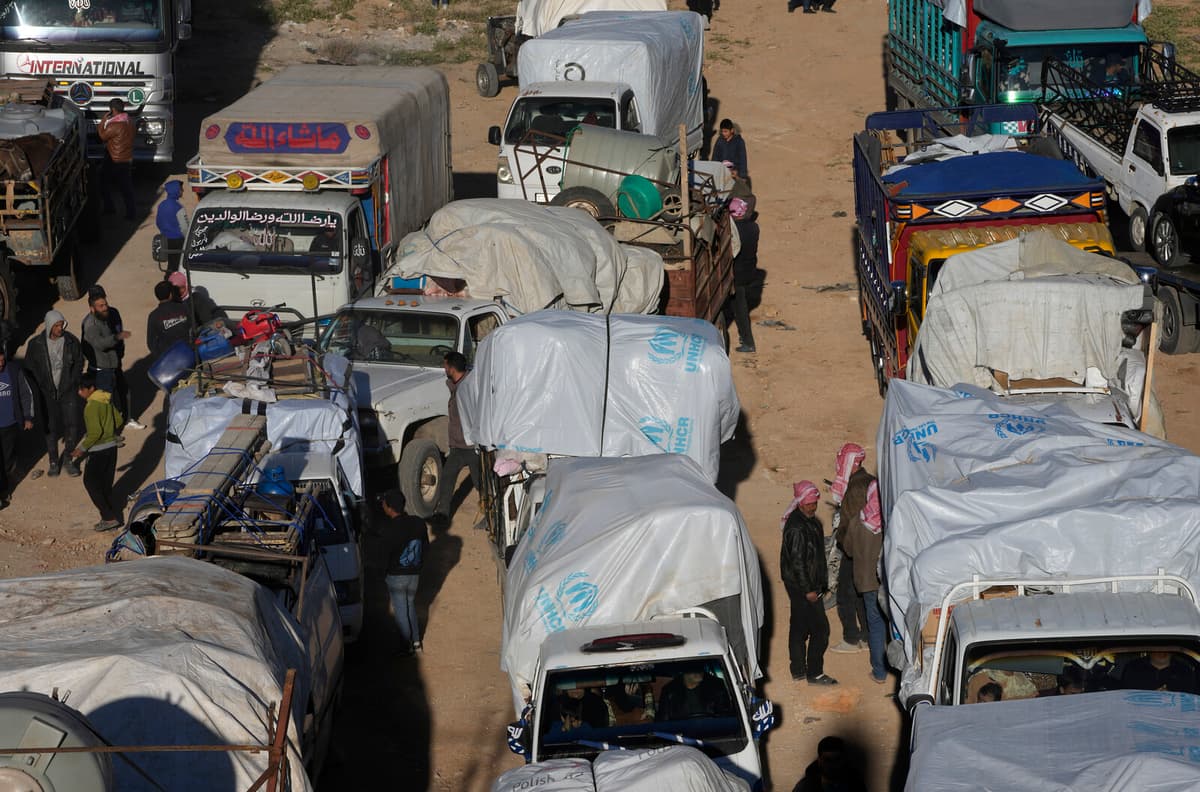Over 50,000 Syrians have returned to their homeland from neighboring countries since December 8, when the Syrian dictator Bashar al-Assad was overthrown. Many of those who have not returned hope for a future in Syria, but are choosing to wait and see how the political situation and security situation develop.
What we hear from Syrians is that very many want to go home, and as soon as possible. But they cannot return to a country that is still at war or where internal conflicts are ongoing, says Annika Sandlund, the UN's refugee agency UNHCR's representative in the Nordic and Baltic countries, to TT.
Fighting is still ongoing in some parts of the country. Moreover, many have had their homes destroyed in the war and the major earthquake in February last year. But the country has not been able to rebuild, as a result of international sanctions during Assad's time in power.
Reconstruction
Efforts for comprehensive reconstruction are now required from the new Syrian government, but the international community also needs to engage, says Annika Sandlund.
During the 14 years of civil war under Assad, we as a UN agency could only provide humanitarian aid, i.e. food, water, and first aid. We could not, due to the sanctions, rebuild any houses, schools, or hospitals. But we can now, she says.
For Syrians to be able to return home, they must have a home to return to.
Sweden can help
The new Syrian leadership has assured that the country will be governed in an inclusive and tolerant manner. In that regard, other countries can use diplomatic channels to help make the process as inclusive as possible, says Annika Sandlund.
There, countries like Sweden can help and try to influence to ensure that those who are included in the new government in Syria.
Many of those who have returned to Syria in recent weeks have come from neighboring Turkey. This may be because the country allows Syrians to return home and see if their house is still standing, if there are schools, and then return to Turkey without losing their refugee status. This is something that UNHCR would like other countries to facilitate as well.
Nothing will convince a person more than if they themselves get to see what needs to be done, how the situation really is, and get to see it with their own eyes, says Annika Sandlund.
Until December 8, the Syrian state had been ruled with an iron fist by the al-Assad family since the 1970s.
Syria's political system was formed by Hafiz al-Assad, president 1970-2000. Son Bashar al-Assad inherited power after his father's death in 2000 and implemented some changes. But the fundamental system remained the same: with the president as both head of state, commander-in-chief, and holding the highest executive power.
The uprising against Bashar al-Assad's regime that started in connection with the Arab Spring in 2011 soon took the form of a civil war with significant involvement of foreign powers, resulting in many deaths and a massive refugee wave.
Independent organizations such as Human Rights Watch and Amnesty International have repeatedly reported on al-Assad's brutal rule and the state-controlled secret police that systematically tortured, imprisoned, and killed opponents of the regime.






